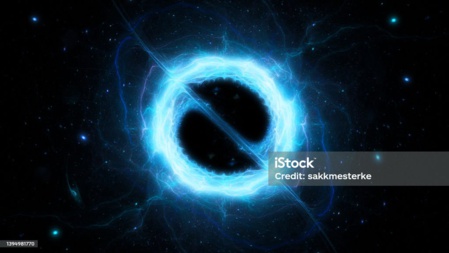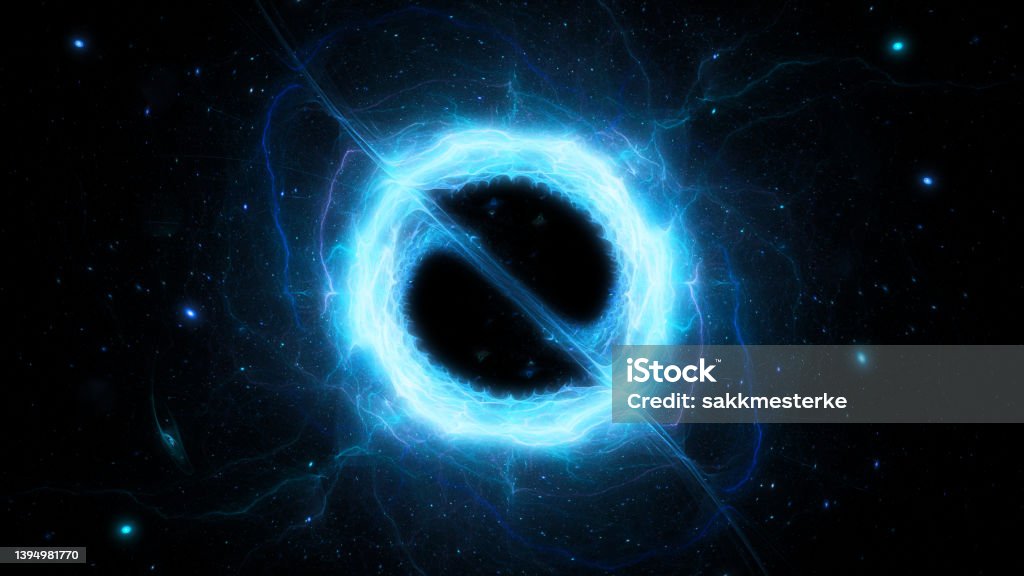
Christopher Nolan “Oppenheimer”: Crafting Cinematic Brilliance with timeless Masterpieces.(c) Blue Planet Studio via Istockphoto.com
In an era characterized by fast-paced consumption of disposable TV shows and movies, "Oppenheimer" emerges as a testament to Christopher Nolan's unwavering commitment to his craft. This film challenges viewers to engage with a multifaceted narrative, defying the prevailing trend of politically correct and sanitized content. In doing so, Nolan encourages audiences to embrace the depth and complexity of storytelling.
One of the hallmarks of Nolan's films is his mastery of intelligent and thought-provoking dialogues. His scripts are meticulously constructed verbal tapestries that engage the intellect of his viewers. Whether exploring the boundaries of reality and dreams in "Inception" or the obsessive pursuit of perfection in "The Prestige," Nolan's characters engage in dialogues that stimulate profound contemplation. They grapple with complex philosophical and moral dilemmas, prompting the audience to ponder the deeper implications of their actions. These dialogues underscore Nolan's belief in the power of storytelling to provoke thought and discussion.
With a remarkable blend of visual splendor, audacious ambition, and thematic richness, Christopher Nolan's foray into historical storytelling with "Oppenheimer" is a visually stunning experience. The film not only delves into a pivotal moment in history but also challenges contemporary cinematic conventions. It stands as a cinematic triumph that celebrates the art of storytelling and invites viewers to partake in a profound exploration of the human condition.
In "Oppenheimer," Christopher Nolan departs from his signature science fiction territory and embarks on a captivating exploration of physicist J. Robert Oppenheimer's extraordinary journey. From Oppenheimer's academic pursuits in Europe to his pivotal role in the covert "Manhattan Project" during World War II, the film offers a compelling narrative. What sets "Oppenheimer" apart is not only its cinematic ambition but also Nolan's willingness of making it a refreshing departure from the norm.
One of the hallmarks of Nolan's films is his mastery of intelligent and thought-provoking dialogues. His scripts are meticulously constructed verbal tapestries that engage the intellect of his viewers. Whether exploring the boundaries of reality and dreams in "Inception" or the obsessive pursuit of perfection in "The Prestige," Nolan's characters engage in dialogues that stimulate profound contemplation. They grapple with complex philosophical and moral dilemmas, prompting the audience to ponder the deeper implications of their actions. These dialogues underscore Nolan's belief in the power of storytelling to provoke thought and discussion.
With a remarkable blend of visual splendor, audacious ambition, and thematic richness, Christopher Nolan's foray into historical storytelling with "Oppenheimer" is a visually stunning experience. The film not only delves into a pivotal moment in history but also challenges contemporary cinematic conventions. It stands as a cinematic triumph that celebrates the art of storytelling and invites viewers to partake in a profound exploration of the human condition.
In "Oppenheimer," Christopher Nolan departs from his signature science fiction territory and embarks on a captivating exploration of physicist J. Robert Oppenheimer's extraordinary journey. From Oppenheimer's academic pursuits in Europe to his pivotal role in the covert "Manhattan Project" during World War II, the film offers a compelling narrative. What sets "Oppenheimer" apart is not only its cinematic ambition but also Nolan's willingness of making it a refreshing departure from the norm.
"Oppenheimer: Another Showcase of Christopher Nolan's Genius"

Like with Interstellar, Christopher Nolan, a filmmaker synonymous with visual splendor, innovation, and storytelling prowess, has consistently delivered major masterpieces throughout his illustrious career.(c) sakkmesterke via Istockphoto.com
In 1942, amid concerns that Nazi Germany was developing a nuclear weapon, the United States initiated the top-secret "Manhattan Project" aimed at creating the first atomic bomb in history. To lead this effort, the government enlisted the brilliant physicist J. Robert Oppenheimer, soon to be nicknamed "the father of the atomic bomb." The film takes us inside the ultra-secret laboratory of Los Alamos, nestled in the heart of the New Mexico desert, where Oppenheimer and his team developed a revolutionary weapon whose staggering consequences continue to influence the world today.
Spanning a colossal three-hour runtime and featuring a star-studded ensemble cast including luminaries like Cillian Murphy, Matt Damon, Emily Blunt, Florence Pugh, and Robert Downey Jr., "Oppenheimer" seizes attention from the very beginning. Its estimated budget of an impressive $100 million challenges prevailing Hollywood norms, underscoring Nolan's unwavering commitment to pushing the boundaries of filmmaking. The film serves as a testament to Nolan's relentless pursuit of cinematic excellence.
Nolan's directorial prowess shines brilliantly in "Oppenheimer," offering an immersive experience that masterfully combines direction, music, and editing. Through meticulous craftsmanship, viewers are seamlessly transported into the intricate world of J. Robert Oppenheimer. The film traces Oppenheimer's journey from initial academic pursuits filled with poetic reveries to his eventual awakening, laden with anxiety and foreboding. Throughout this cinematic odyssey, the musical score, combined with exquisite editing, orchestrates an unstoppable symphony that seamlessly weaves together the threads of humanity, politics, and science. These elements converge to leave an indelible impact on the audience, ensuring that "Oppenheimer" is an experience that resonates long after the credits roll.
However, "Oppenheimer" refuses to conform to the expectations of a conventional historical biopic. In a bold and daring move, Nolan injects the narrative with elements that defy societal norms. Sensual encounters, R-rated content, and hallucinatory sequences punctuate the story, imbuing it with an unexpected layer of complexity. These elements are not gratuitous; rather, they underscore the profound consequences of scientific progress and human ambition. They challenge viewers to engage with the ethical and moral dimensions of Oppenheimer's work, transcending the confines of a traditional biographical narrative.
Moreover, "Oppenheimer" is not content with merely recounting the genesis of the nuclear age; it offers a powerful and prescient commentary on post-war American society. The film vividly portrays the nation's abrupt descent into communist paranoia, a period marked by fear and uncertainty. In this regard, "Oppenheimer" serves as a stark reminder of the unforeseen repercussions of scientific advancements. It illustrates how Oppenheimer's groundbreaking work unwittingly opened the door to a new world, one over which he had lost control, and how this ushered in an era of profound global change.
Spanning a colossal three-hour runtime and featuring a star-studded ensemble cast including luminaries like Cillian Murphy, Matt Damon, Emily Blunt, Florence Pugh, and Robert Downey Jr., "Oppenheimer" seizes attention from the very beginning. Its estimated budget of an impressive $100 million challenges prevailing Hollywood norms, underscoring Nolan's unwavering commitment to pushing the boundaries of filmmaking. The film serves as a testament to Nolan's relentless pursuit of cinematic excellence.
Nolan's directorial prowess shines brilliantly in "Oppenheimer," offering an immersive experience that masterfully combines direction, music, and editing. Through meticulous craftsmanship, viewers are seamlessly transported into the intricate world of J. Robert Oppenheimer. The film traces Oppenheimer's journey from initial academic pursuits filled with poetic reveries to his eventual awakening, laden with anxiety and foreboding. Throughout this cinematic odyssey, the musical score, combined with exquisite editing, orchestrates an unstoppable symphony that seamlessly weaves together the threads of humanity, politics, and science. These elements converge to leave an indelible impact on the audience, ensuring that "Oppenheimer" is an experience that resonates long after the credits roll.
However, "Oppenheimer" refuses to conform to the expectations of a conventional historical biopic. In a bold and daring move, Nolan injects the narrative with elements that defy societal norms. Sensual encounters, R-rated content, and hallucinatory sequences punctuate the story, imbuing it with an unexpected layer of complexity. These elements are not gratuitous; rather, they underscore the profound consequences of scientific progress and human ambition. They challenge viewers to engage with the ethical and moral dimensions of Oppenheimer's work, transcending the confines of a traditional biographical narrative.
Moreover, "Oppenheimer" is not content with merely recounting the genesis of the nuclear age; it offers a powerful and prescient commentary on post-war American society. The film vividly portrays the nation's abrupt descent into communist paranoia, a period marked by fear and uncertainty. In this regard, "Oppenheimer" serves as a stark reminder of the unforeseen repercussions of scientific advancements. It illustrates how Oppenheimer's groundbreaking work unwittingly opened the door to a new world, one over which he had lost control, and how this ushered in an era of profound global change.
Scientific Research, Realism, and Cinematic Splendor in Every Aspect
Christopher Nolan's commitment to scientific research is evident in his films. He intricately weaves scientific concepts and theories into his narratives, making them intellectually stimulating and grounded. For example, in "Interstellar," Nolan collaborated closely with physicist Kip Thorne to ensure the accuracy of the film's portrayal of black holes and time dilation. This dedication to scientific accuracy elevates his films to a level of authenticity few filmmakers achieve. Audiences become active participants in the exploration of scientific phenomena, fostering a deeper connection to the narrative.
Nolan's brilliance extends beyond intellectual aspects to meticulous attention to visual and auditory elements. His scenography, lighting, and cinematography are carefully crafted to serve the narrative. In "Dunkirk," practical effects and real locations immerse the audience in the harrowing reality of World War II. Nolan's use of light and shadow is not merely aesthetic; it's a storytelling tool that sets the mood and enhances the emotional impact of each scene.
Nolan's collaborations with composer Hans Zimmer result in iconic scores that become integral to the storytelling process. The disorienting score in "Dunkirk" heightens tension, while the haunting theme of "Interstellar" resonates with the grandeur of space exploration. Nolan's films are symphonies of sight and sound, meticulously orchestrated to evoke powerful emotional responses.
Major Masterpiece: "Inception"
"Inception" stands as a major masterpiece in Christopher Nolan's filmography. It exemplifies his ability to craft intellectually stimulating narratives that captivate and challenge audiences. In this film, he explores the intricate landscape of dreams and subconsciousness, weaving a complex narrative that blurs the lines between reality and imagination. The dialogues in "Inception" are more than words; they are threads that weave the fabric of a labyrinthine plot.
Nolan's dedication to scientific accuracy is evident in the meticulous portrayal of dream physics and the manipulation of time within dreams. This commitment to realism draws viewers deeper into the narrative, making them active participants in a world where the boundaries of reality are constantly shifting.
Cinematographically, Nolan's use of practical effects and mind-bending visuals creates an immersive experience that lingers long after the credits roll. The film's iconic rotating hallway sequence, achieved without CGI, is a testament to Nolan's commitment to pushing the boundaries of cinematic storytelling.
Christopher Nolan definitely stands as a visionary whose major art movie pieces, exemplified by "Inception," are a testament to his unwavering dedication to crafting intellectually stimulating, visually captivating, and emotionally resonant cinema. His films transcend mere entertainment; they are intellectual journeys that challenge and inspire viewers. Nolan's commitment to pushing the boundaries of technical excellence cements his legacy as a true genius in the world of filmmaking. His works continue to captivate and leave an indelible mark on audiences, affirming his place among the greatest storytellers in the history of cinema. Christopher Nolan's cinematic brilliance is a beacon of inspiration for both aspiring filmmakers and devoted cinephiles alike.
Nolan's brilliance extends beyond intellectual aspects to meticulous attention to visual and auditory elements. His scenography, lighting, and cinematography are carefully crafted to serve the narrative. In "Dunkirk," practical effects and real locations immerse the audience in the harrowing reality of World War II. Nolan's use of light and shadow is not merely aesthetic; it's a storytelling tool that sets the mood and enhances the emotional impact of each scene.
Nolan's collaborations with composer Hans Zimmer result in iconic scores that become integral to the storytelling process. The disorienting score in "Dunkirk" heightens tension, while the haunting theme of "Interstellar" resonates with the grandeur of space exploration. Nolan's films are symphonies of sight and sound, meticulously orchestrated to evoke powerful emotional responses.
Major Masterpiece: "Inception"
"Inception" stands as a major masterpiece in Christopher Nolan's filmography. It exemplifies his ability to craft intellectually stimulating narratives that captivate and challenge audiences. In this film, he explores the intricate landscape of dreams and subconsciousness, weaving a complex narrative that blurs the lines between reality and imagination. The dialogues in "Inception" are more than words; they are threads that weave the fabric of a labyrinthine plot.
Nolan's dedication to scientific accuracy is evident in the meticulous portrayal of dream physics and the manipulation of time within dreams. This commitment to realism draws viewers deeper into the narrative, making them active participants in a world where the boundaries of reality are constantly shifting.
Cinematographically, Nolan's use of practical effects and mind-bending visuals creates an immersive experience that lingers long after the credits roll. The film's iconic rotating hallway sequence, achieved without CGI, is a testament to Nolan's commitment to pushing the boundaries of cinematic storytelling.
Christopher Nolan definitely stands as a visionary whose major art movie pieces, exemplified by "Inception," are a testament to his unwavering dedication to crafting intellectually stimulating, visually captivating, and emotionally resonant cinema. His films transcend mere entertainment; they are intellectual journeys that challenge and inspire viewers. Nolan's commitment to pushing the boundaries of technical excellence cements his legacy as a true genius in the world of filmmaking. His works continue to captivate and leave an indelible mark on audiences, affirming his place among the greatest storytellers in the history of cinema. Christopher Nolan's cinematic brilliance is a beacon of inspiration for both aspiring filmmakers and devoted cinephiles alike.













 Atef de retour avec Marseille, son nouveau clip
Atef de retour avec Marseille, son nouveau clip








